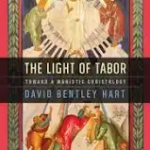INTRODUCTION As Pastor Sumpter pointed out last week, Israel’s calendar was part of her pedagogy. But Paul says that we are now full-grown sons (Galatians 4:1-7) and appears to associate observing days and seasons with reversion to childhood (Galatians 4:10-11; Colossians 2:16-17, 20-21). Is recognizing a church calendar an act of Judaizing? THE TEXT “Beware lest anyone cheat you through philosophy and empty deceit, according to the tradition of men, according to the basic principles of the world, and not... Read more













